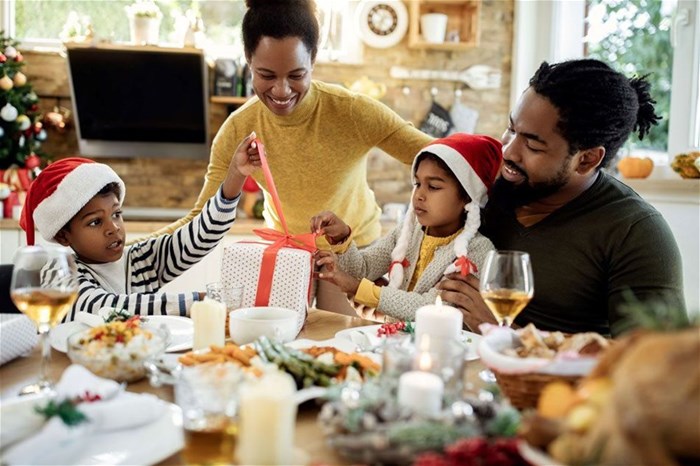The festive season should be a time of celebration, but because expectations are so high, it can also have a sting in the tail. Kena Health's Dr Chido Siame, clinical care lead, says that the first step to having the most fun possible is to strategise how to get the most out of the holiday period.

Image supplied
“We need to recognise that this is a time of heightened emotions, and many people find getting together with family can raise all sorts of buried issues. In addition, the holiday season comes at the end of the working year—year-end burnout is real.
In response, we all share a tendency to deviate from our normal eating, drinking and exercise habits, placing our bodies under stress,” she says. “The best approach is to make conscious decisions about how to maximise our enjoyment and minimise any health risks (including mental health).
Consider these practical tips from Dr Chido Siame:
Set your expectations
Often, we’re disappointed because things don’t live up to our unconscious expectations. Write down what you would like to happen over this period, and in another column, write the things you might not like so much but have to do. Try and even things out—and then add one or two treats just for you. Accept what you can’t do, and if necessary, let the relevant people know.
Organise
There’s a lot to do in the build-up to the festivities, so don’t put yourself under too much strain by leaving everything to the last minute. Make a good, detailed list of everything you need to buy and do and tick off the items. This will also make you feel in control.
Control your spending
A big source of stress is the realisation that you’ve overspent, and a long January lies ahead. Make a budget and stick to it. As already noted, taking control inevitably creates calm.
Eat and drink in moderation
Feast days are called that for a very good reason. It’s good to have a splurge over this period, but don’t overdo it—you’ll feel terrible and perhaps also guilty. Be aware of potential gastrointestinal issues during the holiday season.
Include easily digestible foods and be mindful of food handling practices. Who wants to start the new year with a fortune of weight to lose as well as health concerns?
Rehydrate
You may be good at keeping your water levels up, but when your routine is disturbed, you might forget to drink enough water. At this time, too, you’re likely to be drinking more coffee and alcohol than usual, both of which are diuretics. Keep hydrated, and you’ll feel much better, especially through the heatwaves you are currently experiencing.
Address year-end burnout
Acknowledge the reality of year-end burnout. Take conscious decisions to deviate from normal habits to minimise stress. Consider activities that promote relaxation and mental well-being – your mental health matters.
Exercise
Regular low-impact exercise is enjoyable and enhances your mood — and it’s a way of escaping from the family for a while. Exercise will also keep your metabolism, which is probably under strain from all the extra eating and drinking, ticking over. Make it even more enjoyable by inviting somebody you like to join in.
Get some sleep
Most of us are creatures of routine, so our normal sleep patterns will likely be disturbed — and late nights and parties won’t help. Try and carve out some time to get some proper sleep.
First Aid stash
Prepare for unexpected health concerns with a well-stocked first aid kit. Include essentials like pain relievers, bandages, and any necessary prescription medications. Be ready to handle minor injuries or discomfort during the festivities.
“Because it’s a time of heightened emotion and raised expectations, the festive season can be stressful. If, despite your best efforts, you feel that your mental health is deteriorating, don’t hesitate to seek help. Counsellors at institutions like Lifeline are just a phone call away, as are the mental health professionals at Kena Health,” Dr Chido Siame ends.






































